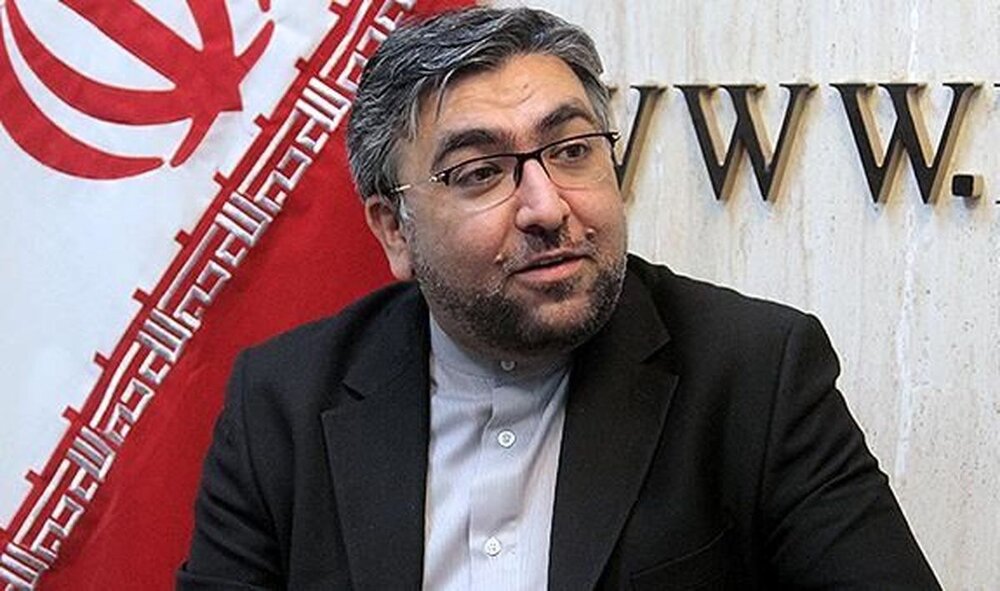MP: Europe doesn’t play expected role in restoring JCPOA

TEHRAN — An Iranian legislator said on Tuesday that the Europeans have backed down from their demands in negotiations to revive the 2015 nuclear deal, officially called the Joint Comprehensive Plan of Action.
In an interview with ISNA, Abolfazl Amouei said, “The Westerners backed down from their demands as they needed Iran in the energy market.”
Criticizing the European signatories to the JCPOA, namely France, UK, and Germany, he said, “We conduct negotiations with the European side and they negotiate with the American side as intermediaries.”
He reminded, “The three European countries that are parties to the negotiations have not been active enough in the past few months and sometimes by taking strange political positions, they not only do not take a step forward in the talks, but also add to the ambiguities in the negotiations. I think that the weakness of European countries in handling the Ukraine crisis made them fail to take effective steps to solve the Iran nuclear case and they do not play an effective role. An example of their negative role is the issuance of a statement by the European parties while the Vienna talks were ongoing.”
Amouei went on to say that if the Europeans really consider returning to the JCPOA as one of their security priorities, they should take more effective measures and help Iran achieve its rights based on the JCPOA in reaping economic benefits.
He also said Joe Biden's visit to the region on July 13-16 was one of the reasons why the Americans did not agree with Iran’s demands in the Doha talks held in late June.
“In those negotiations, Iran expressed demands based on the logic of JCPOA and its frameworks,” he stated.
According to the MP, Biden's trip to the occupied territories and Saudi Arabia did not bring the desired achievement for the Americans.
“Biden's trip to the region was designed with the aim of finding new partners who can supply energy to the global market. In the meantime, during this trip, the Zionist regime tried to take new steps to normalize relations with some Arab states, but in the end, Biden's trip to the occupied territories and Jeddah did not bring the desired achievement…, and they did not see an increase in the energy supply by the countries of the region,” he stated.
Amouei noted that according to American analysts Biden's trip to the occupied territories and Saudi Arabia was not a success.
The MP said he thinks one of the reasons that Westerners are backing down from their previous positions is that they “have realized the need of the global energy market to the Iranian oil and are ready to take steps in this regard.”
He went on to say that reaching an agreement is not only limited to the area of removing restrictions on Iran's oil exports, but Iran must gain access to its frozen assets and that foreign trade barriers must be removed.
Russia is not an obstacle to reaching an agreement
On whether Russia tried to create obstacles in the latest round of negotiations held in Vienna from August 4 to 8, he said, “In March, an issue was raised about Russia's request to obtain sanctions waivers in the matter of cooperation with Iran. After the negotiations between Iran and Russia in April and the explicit positions stated by the Russian authorities, it became clear that Russia wants exemptions from sanctions in the issue of cooperation related to the implementation of the JCPOA and has no demands beyond that. Therefore, Russia does not prevent reaching an agreement.”
The parliament will decide on the implementation of nuclear restrictions
Amouei, who represents the Tehran constituency, also stated that the parliament has a supervisory role in possible implementation of the JCPOA, saying, “The Strategic Act on Removing Sanctions has expressed the general approach of the Majlis in case of a possible agreement.”
In conclusion, the MP went on to note that if an agreement is reached, a report on the removal of sanctions should be sent to the parliament, and the parliament will be the decision-maker.
“The Majlis assesses the removal of sanctions by considering the economic interests of the people,” he noted.
